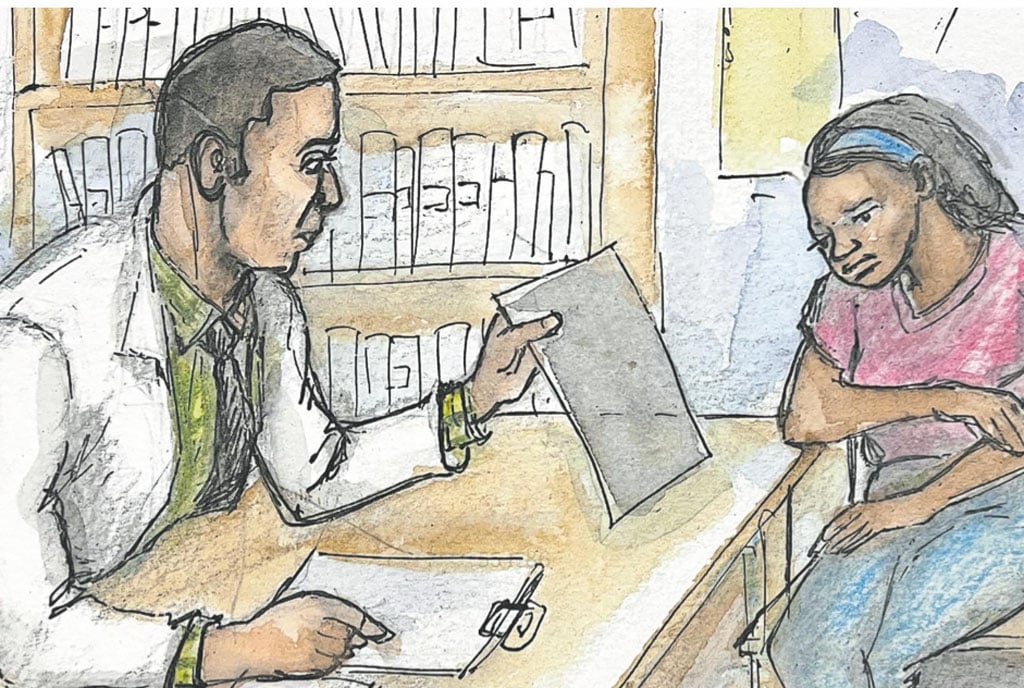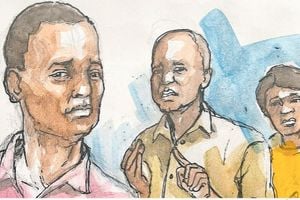
In June 2000, a patient with initials BS, consulted a one Dr Jonardan, who diagnosed the patient’s illness as a tear in the anus, medically known as a fistula-in-ano, and a cyst in her perineum- the area of the body between the anus and the vulva in females
The two entered into a verbal doctor-patient contract, as is in most cases, where the doctor undertook to perform surgery for the two conditions and assured the patient that the surgery would cure the condition.
The patient agreed to pay the doctor’s professional charges and, indeed, paid the agreed amount.
Joy that was short-lived
The doctor performed the surgery on June 8, 2000 and after the operation, the doctor reassured the patient that the surgery was successful and that the two problems would never recur.
Nine months later, the same problem recurred and the doctor had to undertake further surgery on her on March 28, 2021.
The patient was not satisfied with the outcome of the surgery and the surgeon’s explanation and consulted another doctor, who observed that the patient’s sphincters- a ring-shaped muscle that relaxes or tightens to open or close a passage or opening in the body, were injured and gave her a referral letter to take to the Ano-rectal Surgery department of St Mark’s Hospital, Harrow in the United Kingdom.
In the UK, she was seen by a professor, who examined her and sent her for specialised ultra sound scans. It was then recommended that she undergoes another surgery, which could improve her condition to some degree, by improving her external sphincter injury, but there was no chance of repairing the internal sphincter because it was totally disrupted.
The doctors told her that the results of the surgery would be very good initially, but the long terms results were usually significantly poor. She was, therefore, advised to delay the operation, until she really needed it.
It was after the review in the UK, that she filed a case of medical negligence against the doctor, who performed the two surgeries, claiming that the doctor performed the surgeries so negligently and unskillfully that her condition worsened.
Doctors do not cure patients
The doctor denied the accusations and told court that being a professional surgeon of long standing, he could not and did not in this particular case give assurance of any kind, whatsoever, to the patient that he would cure her of her condition and that the two conditions would not recur.
He told court that in the medical profession, doctors do not cure patients, but only give treatment, which he did to the best of his professional ability and judgment.
The doctor told court that the surgery complained of was done with utmost professional care and skill. He explained to court that the patient’s tear affected both the internal and external sphincters of the anal canal and the condition was complicated by a cyst.
These conditions were explained to the patient and that the patient understood the nature of diagnosis, and truly understood and agreed to take the risk of surgery, which surgery was performed to the best of the doctor’s professional training. The doctor emphasised that the patient accepted the risks associated with the surgery.
Patient’s evidence
The patient was born on June 30,1973 and had studied in Austin University in Birmingham, UK, where she qualified as an optometrist. It was her dream to open her own practice as an optician.
It was her evidence that in the month of March 2000, she developed a boil in the anal region that was drained, but the problem recurred and she was referred to the surgeon.
The surgeon then undertook two operations, one on June 8, 2000, and the other on March 27, 2001. Before the first operation, the doctor had assured her that the problem was nothing major and that she should be okay after the operation, but this was not to be.
Again before the second surgery, the surgeon told her that she would be fine, and the problem would not recur. It was the evidence of the patient that the surgeon did not warn her of any risk of damage to her sphincters.
Her bowel control was fine
It was also the patient’s evidence that had she been warned of this danger she would have sort a second opinion.
It was the patient’s evidence that after the second surgery, she lost continence to stool and developed incontinence to gas and started to soil her underwear.
She went back to the surgeon in July 2001 and the doctor told her that the problem was with her diet and that the problem had nothing to do with the operation.
It was her evidence that before the two operations, her bowel control was fine but after the operations she developed incontinence to gas and stool.
She told court that she had to constipate herself to avoid accidents, as she was often in embarrassing situations when she would soil herself if she did not constipate herself. She was constantly passing gas and if there was no toilet nearby then she would be in real trouble.
Complications set in
When she was travelling, she really had to constipate herself, as what she used to clean herself with was at home and she could not carry it everywhere with her.
Her sex life with her husband was affected and it was having an effect on her marriage. She could not work as an optometrist anymore and she could not play all sorts of games. Her situation forced her to work in a family pharmaceutical business.
The surgeon who referred the patient to the U.K, gave evidence in court to the effect that he saw the patient in August 2001 and when he saw her she complained of pains during sexual intercourse as well as incontinence to both gas and soft stool, following a surgery that had been performed in March 2001.
he doctor told court that due to the patient’s condition, he referred her to a specialised hospital in the U.K. and the referral was by way of a letter to which he received a letter. He also prepared a report after examining the patient, which report he presented to court.
To be continued...








